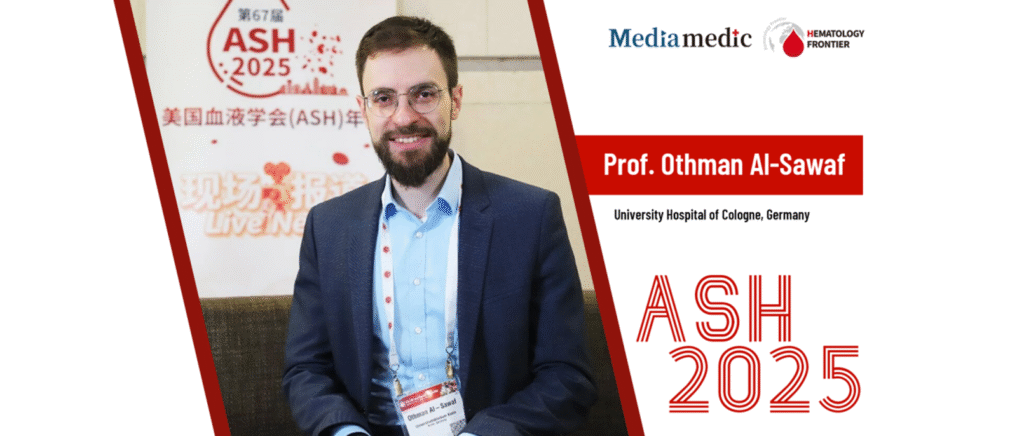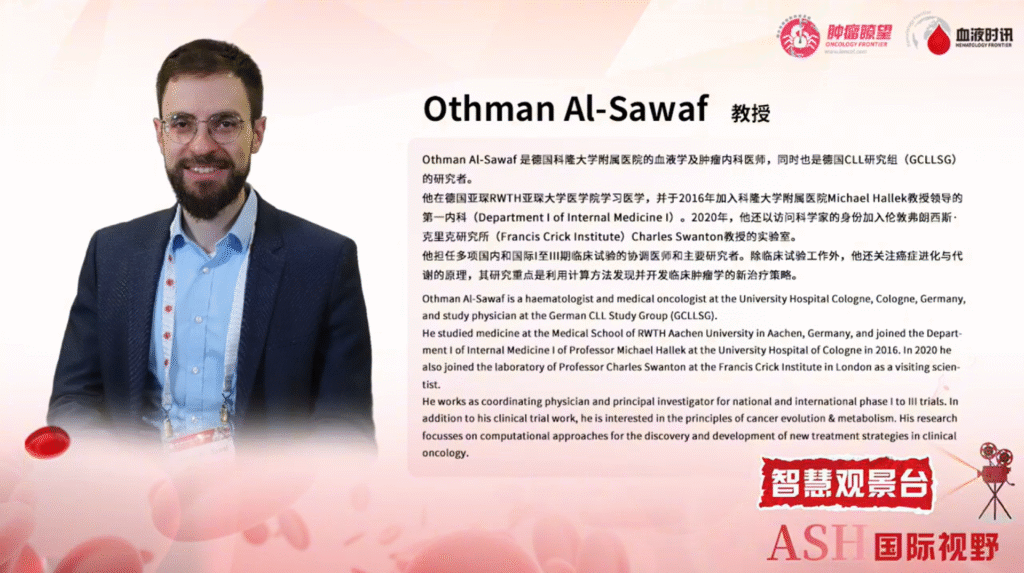Global Perspectives at ASH |Professor Othman Al-Sawaf: The CLL17 Trial Redefines the Treatment Paradigm—Fixed-Duration Therapy Is Non-Inferior to Continuous Treatment
The widespread adoption of targeted therapies has significantly improved long-term outcomes for patients with chronic lymphocytic leukemia (CLL). However, a critical question has remained unanswered: Is fixed-duration therapy as effective as continuous treatment? Until now, no prospective head-to-head evidence had directly compared these two strategies.










